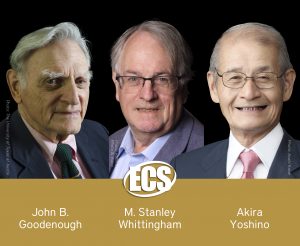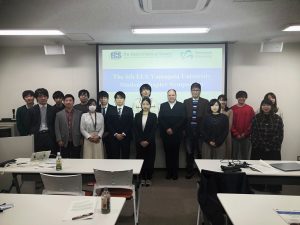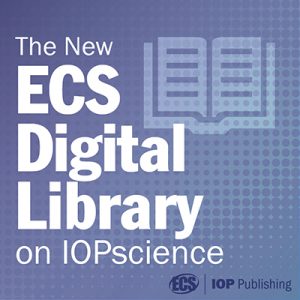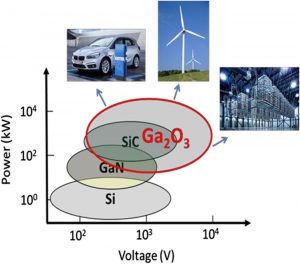
Professor Jason Keleher
Jason Keleher and his students share their experience, strength, and hope
The pandemic sent shockwaves through the academic community. Some institutions are weathering the storm better than others. At Lewis University (LU), Professor Jason Keleher and his students, Carolyn Graverson, Abigail “Abby” Linhart, and Katie Wortman-Otto, are optimistic. In our series, The ECS Community Adapts and Advances, they share their COVID-19 experiences and hopes for the future.
Motivation matters
Jason Keleher, Associate Professor and Chair of the LU Chemistry Department, describes what motivates him to meet the daunting changes confronting faculty. “I keep going because of my great group of students, colleagues, and collaborators. They inspire me every day to work at what is most interesting to the community in terms of solutions to globally pressing problems—whether it’s COVID-19, alternative energy, or waste treatment. Even if our only communication is digital, I appreciate that my team is committed to learning and knowledge in order to become accomplished scientists. I get a chance to be part of that journey.” (more…)


 The Electrochemical Society honors 2019 Nobel Chemistry Prize laureates, John B. Goodenough, M. Stanley Whittingham, and Akira Yoshino, by the launch of a
The Electrochemical Society honors 2019 Nobel Chemistry Prize laureates, John B. Goodenough, M. Stanley Whittingham, and Akira Yoshino, by the launch of a  In “
In “ Deadline: March 1, 2020
Deadline: March 1, 2020 To ensure easy access to important research in The Electrochemical Society publications, update your bookmarks. Since ECS launched its partnership with IOP Publishing on January 2, 2020, all ECS digital publications are only available through IOPscience. ECS bookmarks will not be rewritten by the server. You must update your URLs (web page addresses) yourself.
To ensure easy access to important research in The Electrochemical Society publications, update your bookmarks. Since ECS launched its partnership with IOP Publishing on January 2, 2020, all ECS digital publications are only available through IOPscience. ECS bookmarks will not be rewritten by the server. You must update your URLs (web page addresses) yourself.

 When ECS and IOP Publishing complete their partnership on January 2, 2020, with the launch of the ECS Digital Library on IOPscience, two great institutions will bring over 200 years of experience in excellent scientific publishing to advancing theory and practice at the forefront of electrochemical and solid state science and technology, and allied subjects.
When ECS and IOP Publishing complete their partnership on January 2, 2020, with the launch of the ECS Digital Library on IOPscience, two great institutions will bring over 200 years of experience in excellent scientific publishing to advancing theory and practice at the forefront of electrochemical and solid state science and technology, and allied subjects. Accepting Submissions: December 26, 2019 – March 25, 2020
Accepting Submissions: December 26, 2019 – March 25, 2020